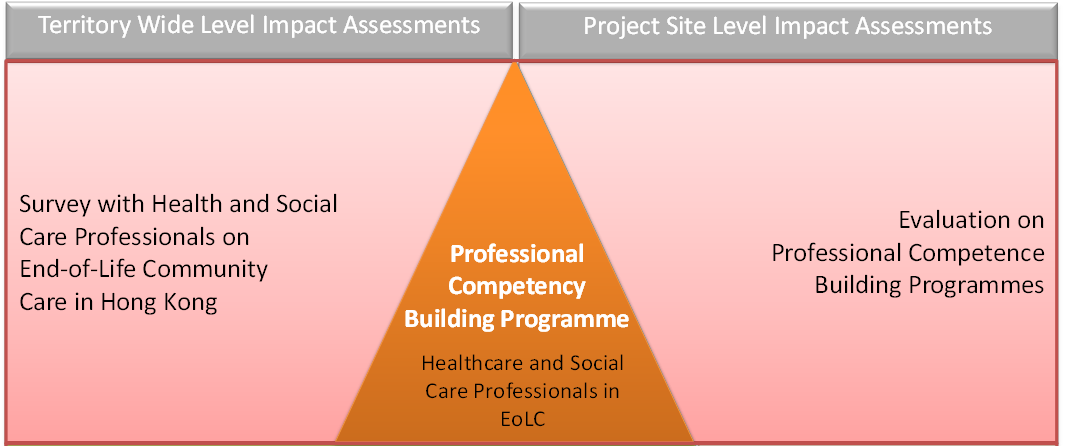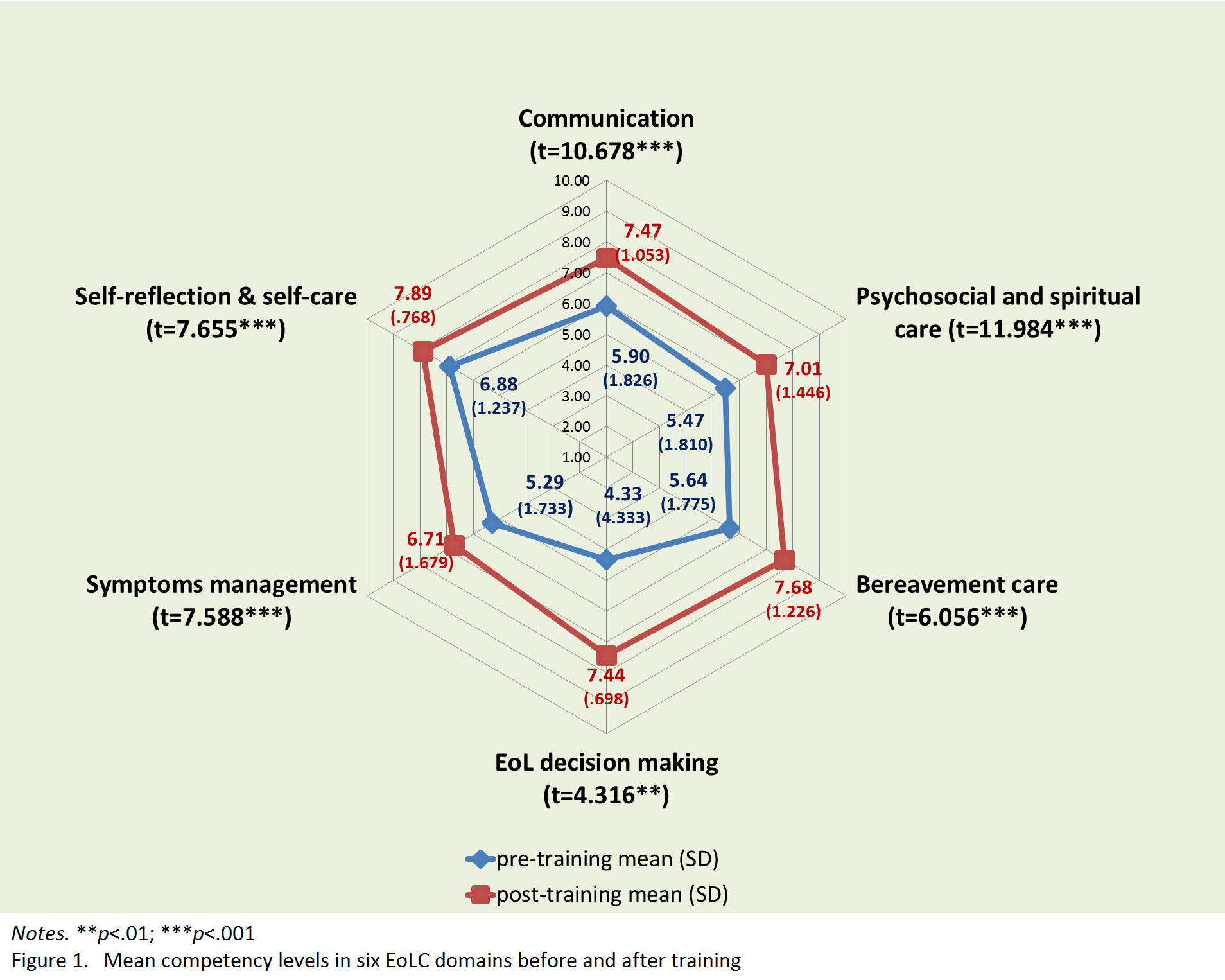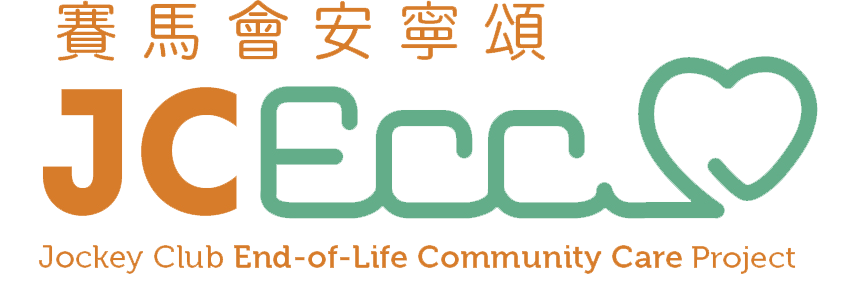
Evaluation on Professional Competence Building Programmes

- Survey with Health and Social Care Professionals on End-of-Life Community Care in Hong Kong
We hope that the professional training programmes launched by the JCECC project not only bring direct benefits to the programme participants, but might also bring along a ripple effect –programme participants might influence their colleagues with their acquired knowledge and skills in EoLC, leading to positive shifts in the culture of the field of EoLC as a whole. Specifically, changes in attitudes, skills, and knowledge towards EoLC and allied services. Thus, a three-time-point survey on healthcare and social care professionals is conducted to explore the training needs of healthcare and social care professionals in EoLC as well as the changes in the culture of the field of EoLC. This professional survey will be carried out between April and July in 2016, 2017 and 2018. Study report will be disseminated in future.
If you are a healthcare and social care professional (e.g. physicals, nurses, social workers, religious practitioners, other allied health professionals etc.), we sincerely invite you to participate in the 2017 professional survey by taking 20 minutes to complete an online survey either in English version or in Chinese version.
- Evaluation on the Impact of Professional Competence Building Programmes
Over the 3-year project period, the JCECC project provides a series of professional capacity building programme on end-of-life care (EoLC) to professionals, volunteers and caregivers aiming to enhance their competency to provide more comprehensive and humane EoLC. In order to assess the effectiveness of the competence building programmes, workshop participants were invited to complete a pre-and-post training evaluation on their EoLC competences.
Between April and November 2016, a total of 13 training workshops for healthcare and social care professionals have been organized by the Faculty of Social Sciences of The University of Hong Kong. A total of 262 (61.8%) workshop participants including social workers, nurses, and other healthcare professionals participated in the evaluation.
Participants’ EoLC competences were measured on a 10-point Likert scale with 1 represents “Not competent at all” and 10 represents “Very competent”. Remarkable improvement was observed in the post training evaluation in all competency domains (p<.01 to p<.001) (Figure 1). Except the self-reflection and self-care domain, the mean competence levels of all other domains were below 6.5 (out of 10) before training, whereas the mean competence levels of all of the six domains increased to above 6.5 after training.




